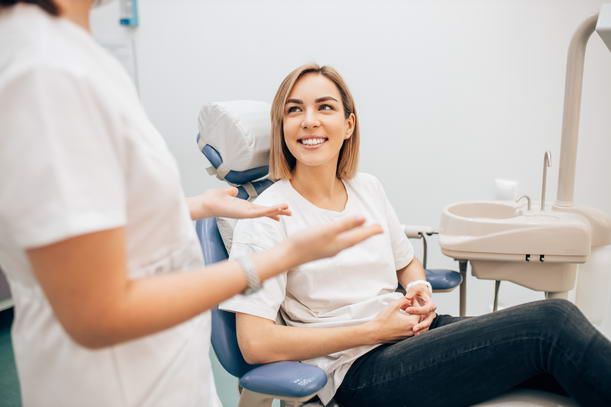To Order Levaquin Online Visit Our Pharmacy ↓

Possible Side Effects of Levaquin
However, Levaquin is also associated with more side effects than other antibiotics. A class action lawsuit filed against the drug's manufacturer alleged that the warning labels of the medication did not adequately inform patients of these risks. Levaquin is a fluoroquinolone antibiotic medication that works by inhibiting DNA synthesis in bacteria, leading to their death or prevention of growth. However, it is important to note that Levaquin may also have potential side effects and considerations, which should be discussed with a healthcare provider before starting treatment. Additionally, the FDA cautions that Levaquin use increases the risk of tendinitis and tendon rupture, particularly among patients over the age of 60 or those taking corticosteroids. Tendonitis can occur in any part of the body where tendons are present, but it is most common in the shoulders, elbows, wrists, knees, and ankles. Therefore, it is essential to understand the potential risks before starting Levaquin treatment.
Conclusion
It is always recommended to consult with a healthcare professional to discuss potential side effects and consider alternative treatment options if necessary. However, its use has been associated with the depletion of healthy gut bacteria. Chronic sinusitis is a condition characterized by inflammation of the sinuses that lasts for more than 12 weeks. It is important to talk to a healthcare provider to determine the best course of treatment for a specific condition. These include the risk of tendonitis and tendon rupture, as well as potential adverse effects on the gastrointestinal and nervous systems. When evaluating the effectiveness of Levaquin in overcoming chronic sinusitis, it is important to consider the results of clinical studies and patient experiences. Levaquin has proved to be a game-changer in modern medicine due to its ability to provide rapid relief even in severe cases of infections.
Binds to Enzymes in Bacteria
However, it is worth noting that Levaquin is not effective against viral sinus infections. Levaquin has become a prominent name in the world of antibiotics due to its potency and rapid onset of action, making it a highly effective treatment option for patients with serious infections. Unlike other antibiotics that require multiple doses per day, Levaquin only needs to be taken once a day, making it more convenient for patients. To minimize the risk of these side effects, patients should take Levaquin only as prescribed and report any unusual symptoms to their healthcare provider. Several settlements have been made in favor of patients who experienced these adverse effects. Its ability to provide quick results has made it a favorite among doctors and patients. The dosage of Levaquin depends on the type and severity of the bacterial infection.
Discussing Patient Experiences with Levaquin
The drug is available in the form of pills, making it easily accessible to patients who are in urgent need of treatment. Patients should be aware of these risks before taking Levaquin and should be monitored closely for side effects during treatment. Your doctor should be aware of all medications you are currently taking in order to avoid potential interactions with Levaquin. Levaquin's mode of action prevents bacterial cell division, preserving the patient's immune system to enable its natural defenses to aid in the elimination of the harmful bacteria. Furthermore, Levaquin has been linked to the development of tendonitis and tendon ruptures, particularly in older individuals, which can result in limited mobility and significant discomfort. It is important to talk to your doctor about any potential risks and benefits before taking Levaquin. In addition, Levaquin has been associated with more serious side effects, such as tendonitis, tendon rupture, and peripheral neuropathy.
The Connection between Levaquin and Tendonitis
Levaquin is a type of antibiotic that is commonly used to treat bacterial infections. It is effective against a wide range of bacteria, including those that cause urinary tract infections, pneumonia, skin infections, and sinusitis, among others. Levaquin is a type of antibiotic that is classified as a fluoroquinolone. The drug is particularly popular due to its high potency and the swift relief it provides to patients with infections, earning it the nickname of "miracle drug." In this article, we examine the rise of Levaquin and what makes it an important player in the world of antibiotics. One alternative is to switch to another antibiotic in the same class, such as moxifloxacin or ciprofloxacin. Levaquin has become popular due to its ability to provide quick relief from the symptoms of infections. This makes it difficult for the bacteria to multiply and spread within the body, giving the immune system a chance to eliminate the infection.
Disrupts Bacterial Dna Synthesis
Additionally, because Levaquin targets bacterial enzymes specifically, it has a relatively low risk of causing harm to human cells, making it a highly effective antibiotic for a variety of bacterial infections. Levaquin is often prescribed for infections involving the urinary tract, respiratory system, skin, sinuses, and prostates. Side Effects: Levaquin is a powerful antibiotic that can effectively treat a range of bacterial infections, such as pneumonia, bronchitis, and urinary tract infections. Levaquin is a broad-spectrum antibiotic, meaning it is effective against a wide range of bacteria. Tendons are fibers that connect muscles to bones. Levaquin is a powerful antibiotic drug that has been praised for its efficacy in treating serious infections. However, like all medications, there are potential side effects associated with Levaquin.
Impact on Gut Bacteria
Levaquin belongs to a class of antibiotics called fluoroquinolones. The immune system's role is to target and destroy any foreign invaders, including bacteria, viruses, and other pathogens. Rarer but more serious side effects can also occur, such as allergic reactions, tendon damage, and increased risk of C. Side Effects: Levaquin has been associated with a range of side effects, including mild to severe adverse reactions. Overuse and Resistance: Levaquin, a fluoroquinolone antibiotic, has been overused and misused in the past. However, these medications may not be effective against all types of bacterial infections. It is, therefore, recommended that patients follow the prescribed dosage and administration guidelines to minimize potential adverse reactions.
Fast Relief with Levaquin: A Game-Changer in Modern Medicine
Make sure to drink plenty of fluids while taking Levaquin. This fluoroquinolone antibiotic has been approved by the FDA for treating a range of bacterial infections, including respiratory, urinary tract, skin, and digestive infections. Levaquin targets bacteria by binding to enzymes within the bacterial cells. One option is using probiotics, which can help restore the balance of gut bacteria that Levaquin disrupts. The drug can be taken orally as well as administered via injection, depending on the type and severity of the infection. In the next section, we explore the power of Levaquin in detail, and how it helps patients take control of serious infections. Levaquin, also known by its generic name levofloxacin, is an antibiotic commonly prescribed to treat bacterial infections.
Side Effects
In case of experiencing any unusual side effects or symptoms, patients should speak with their doctor immediately. Levaquin's efficacy in treating bronchial inflammation makes it a popular choice among healthcare providers when managing bronchitis cases. Possible Side Effects of Levaquin: Levaquin, being a broad-spectrum antibiotic, can cause a range of side effects. Levaquin is known to interact with several drugs, increasing the risk of side effects or decreasing the effectiveness of one or both of the drugs. While it is important to consult with a healthcare professional before starting any new treatment regimen, incorporating natural remedies and lifestyle changes can offer a safer and more effective alternative to Levaquin and other antibiotics. Its effectiveness and targeted approach make it a widely-used and trusted antibiotic in the medical field. It is prescribed for the treatment of a variety of bacterial infections such as respiratory tract infections, urinary tract infections, and skin infections.
Understanding the Causes of Chronic Sinusitis
The medication has been widely used to treat bronchitis, pneumonia, urinary tract infections, and many other bacterial infections. Alternative Treatment Options: For individuals who suffer from adverse reactions to Levaquin or for those who want to avoid using antibiotics whenever possible, there are alternative treatment options. Levaquin may also interact with corticosteroids, nonsteroidal anti-inflammatory drugs, theophylline, anticoagulants, and other antibiotics. By examining the range of patient experiences, healthcare professionals and individuals suffering from chronic sinusitis can make more informed decisions about whether Levaquin is a suitable treatment option for their specific conditions. Levaquin works by inhibiting the growth and replication of bacteria, which stops the spread of infection. Alternative treatment options should be considered to prevent further antibiotic resistance. Additionally, it can be given orally or intravenously, making it a versatile treatment option.













